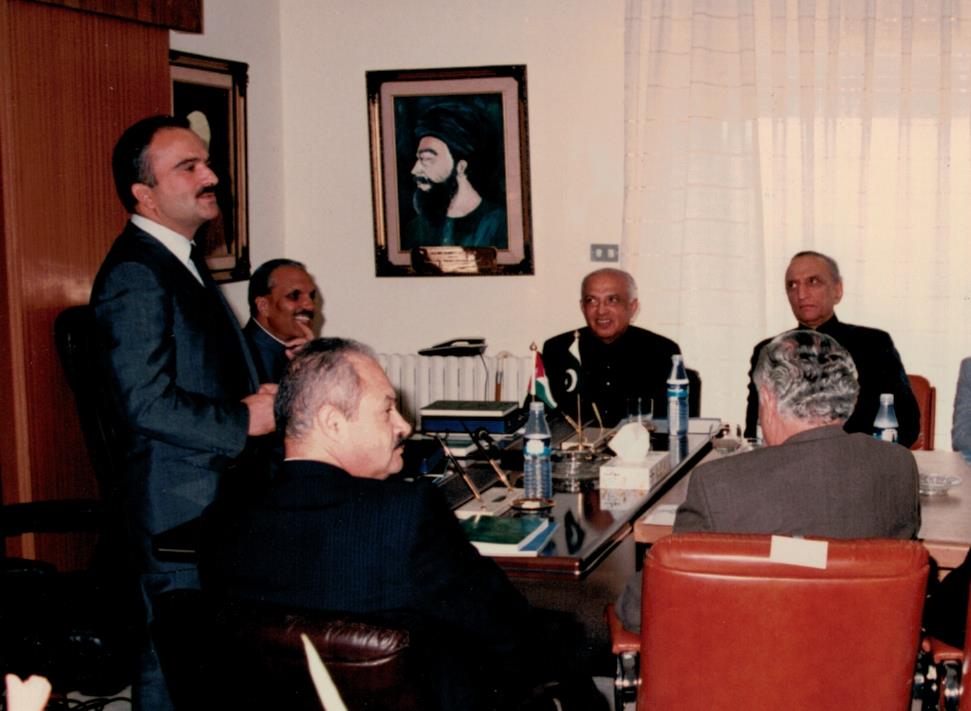As well as being a science advisory body of the OIC, the IAS combines three other different functions.
Firstly, it is a learned society that promotes the values of modern science, honors high achievement and disseminates scientific breakthroughs through meetings and publications.
Secondly, it is a forum where science and scientific issues are debated. The IAS also leads the scientific community of the OIC in its relations with societies, governments and academies of sciences worldwide.
Thirdly, it is an academic repository of the history of science – particularly in the context of the Islamic civilization – as many of its Fellows and associates are noted experts in this field.
It is moreover a facilitating agency that supports the best OIC individuals to undertake imaginative and far-reaching research.
In short, the IAS has been designated by many as the voice of science and technology in the Islamic world.
Historical Background

The establishment of the IAS was recommended by the OIC Standing Committee on Scientific and Technological Co-operation (COMSTECH) and approved by the Fourth Islamic Summit of OIC Heads of State, held in Casablanca, Morocco, in 1984.
The Academy, which commenced its activities in 1986, thirty-eight eminent scientists and academicians from various Islamic countries were invited to Amman (Jordan), to lay the constitutional and academic foundation of the Islamic World Academy of Sciences, as the Founding Fellows of the IAS. The Founding Conference was patronized by His Royal Highness Prince El-Hassan Ibn Talal of Jordan. Prince El-Hassan bin Talal and President of Pakistan (then was the late Zia-ul-Haque) were unanimously nominated as Patrons of the IAS.
The IAS is an independent body that enjoys international status comparable to other international learned bodies of a similar nature throughout the world.
Today, the IAS boasts a membership of 97 Fellows who represent the scientific elite of OIC countries and communities worldwide. It used to have 3 Nobel Laureates, two of them had passed away, the Mustafa Prize Laureates as well as a number of top business leaders and scientists across the OIC countries among its select group of Honorary Fellows.
فضلا عن كونها هيئة استشارية علمية لمنظمة التعاون الإسلامي، تقوم الأكاديمية بأربع وظائف رئيسية أخرى
اولاً، تؤدي الأكاديمية دور جمعية للمفكرين والعلماء تسعى جاهدة لنشر مفاهيم العلوم الحديثة وتكريم الانجازات العلمية كما تنشر أخبار المنجزات العلمية من خلال المؤتمرات والمطبوعات
ثانياً، تعتبر منتدى متخصصاً في البحث في قضايا العلوم والتكنولوجيا المعاصرة، حيث تقود الأكاديمية المجتمع العلمي في دول منظمة التعاون الإسلامي في علاقاته مع الجمعيات العلمية والحكومات وأكاديميات العلوم في العالم
ثالثاً، تعد الأكاديمية مرجعياً مهماً في مجال تاريخ العلوم, وخصوصا تاريخ العلوم في الحضارة الاسلامية لأن عددا من أعضاء الأكاديمية وأصدقائها خبراء مرموقون في هذا المجال
وتعتبر الأكاديمية جهة داعمة للباحثين في دول منظمة التعاون الاسلامي، وتسعى الى تمكينهم من إجراء البحوث المبتكرة رفيعة المستوى. كما اختيرت الأكاديمية من قبل العديد لتكون صوتاً للعلوم والتكنولوجيا في العالم الإسلامي

